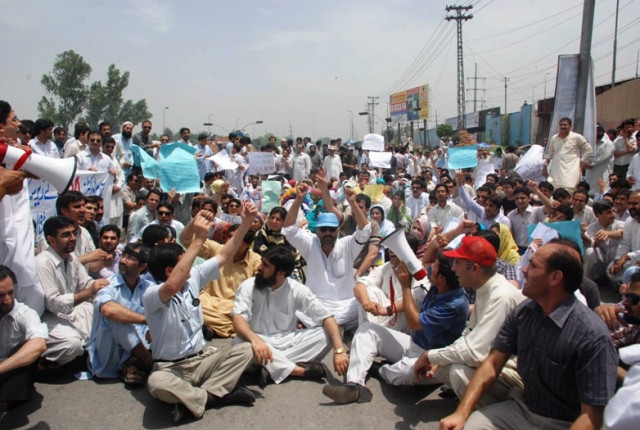Doctors’ strike
The strike by doctors in Quetta is approaching a month and it is becoming easier to quantify the human toll of this.

True, junior doctors are overworked and underpaid, but that is the case with new entrants in all professions. Certainly, they should try and work out better deals through collective bargaining but ailing patients should not be used as chips in this high-stakes game. Here we need to follow the example of the US, which passed legislation disallowing government employees who provide essential services from going on strike. In the 1980s, then US president Ronald Reagan fired and replaced air-traffic controllers who had gone on strike. It is still too early for the government to take similar action against the doctors but if an agreement is not reached soon and more neglected patients die, this may be the only outcome.
Before it comes to that, both parties need to come to the bargaining table and hash out a deal. A month is a long enough time to make a point and the junior doctors have done just that. Now they need to get back to work. The government, for its part, should now be well aware that the doctors are capable of going on strike at any point and so provide them a better deal. The fear is that if this strike goes on much longer both sides will become so intransigent as to make a deal impossible. And it will be the poor patients who bear the brunt of this dispute.
Published in The Express Tribune, May 30th, 2011.














COMMENTS
Comments are moderated and generally will be posted if they are on-topic and not abusive.
For more information, please see our Comments FAQ